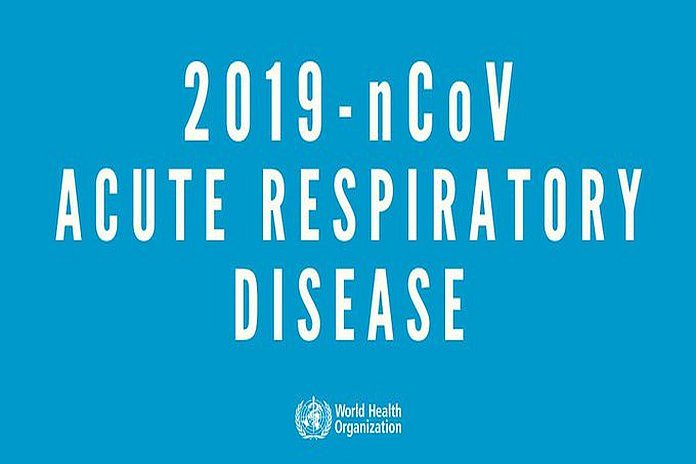GENEVA, Switzerland – The head of the World Health Organization (WHO) appealed on Wednesday for $675 million to boost international measures to counter the new coronavirus epidemic, as deaths from the outbreak neared 500.
Speaking in Geneva, Tedros Adhanom Ghebreyesus said that latest data indicated 24,363 confirmed infections in China and 490 deaths from the respiratory disease (2019-nCoV), which was declared on December, 31.
“In the last 24 hours, we had the most cases in a single day since the outbreak started (3925 new cases globally),” he said. Noting the concern generated by the virus, Tedros added that “we must not forget how difficult it is for the people of Wuhan”, in reference to the city at the epicentre of the outbreak in central China.
Outside China, 191 cases have been reported in 24 countries and there has been one death in the Philippines, the WHO director-general told journalists. Of that number, 31 cases are people with no travel history to China, he explained, but all of them are close to contacts of confirmed cases, or to someone from the hotspot city of Wuhan, where the epidemic originated.
This “relatively small number” of infections outside China which is home to 99 percent of cases, with 80 percent of these in Hubei province alone, has presented a “window of opportunity” to prevent the outbreak from developing into a global crisis, the WHO director-general insisted.
Highlighting that the UN health agency’s major concern is that the virus could reach countries without the capacity to detect infections, Tedros urged the international community to show solidarity, political, technical and financial to ensure that it does not spread further.
“My biggest worry is that there are countries today who do not have the systems in place to detect people who have contracted the virus, even if it were to emerge”, he said. “Urgent support is needed to bolster weak health systems to detect, diagnose and care for people with the virus, to prevent further human to human transmission and protect health workers.”
“We are only as strong as our weakest link”, he said, adding that the WHO has released $9 million from its emergency financial reserves to help combat the epidemic. In addition, WHO has distributed some 500,000 facemasks, along with 350,000 medical gloves, 40,000 respiratory kits and around 18,000 isolation gowns to 24 countries.
The agency has also sent some 250,000 test samples to more than 70 laboratories around the world to speed up virus detection. “But we need to do more”, he said, before outlining how the $675 million strategic preparedness and response appeal would support countries to protect their populations with better prevention measures and speedier diagnosis.
“We understand that people are worried and concerned, and rightly so,” he said. “But this is not a time for fear this is not a time for panic. It’s is a time for rational, evidence-based action and investment while we still have a window of opportunity to bring this outbreak under control.”
To date, there is no proven drug to treat the coronavirus, Dr Michael Ryan, executive director, WHO health emergencies programme, told journalists.
Confirming that a small WHO team of international epidemiology experts was expected to visit China “to learn from Chinese counterparts”, Dr Ryan noted that the infection predominantly affects older patients with pre-existing conditions. “Providing respiratory support (to affected individuals) is very important,” he added, noting that while some deaths were linked to multiple organ failure, very sick patients will survive if they receive sufficient and timely care.
The WHO believes that the outbreak poses a “very high” risk in China and a high risk regionally and globally.
Its risk assessment is based on factors including the likelihood of further spread, the potential impact on human health, and the varying levels of effectiveness in national preparedness and response measures.
Accelerated action, as called for in Wednesday’s appeal, can address these risks and areas requiring support, the agency said in a statement.
The UN Food and Agriculture Organization (FAO), the International Fund for Agricultural Development (IFAD) and the World Food Programme (WFP) wrote to the Chinese premier on Wednesday, jointly expressed solidarity and offering support as the country battles the outbreak.
In a joint letter to president Xi Jinping, the heads of the three agencies – FAO director-general QU Dongyu, president of IFAD Gilbert Houngbo, and WFP executive director David Beasley, paid tribute to the resilience of the Chinese people and praised the efforts made by the country dealing with the emergency.
Describing the outbreak as a “health challenge for China and the rest of the world,” the three Rome-based agencies pledged readiness to provide support, based on their respective areas of expertise, to China’s efforts to alleviate the impact of the virus on the population, particularly in rural areas.





